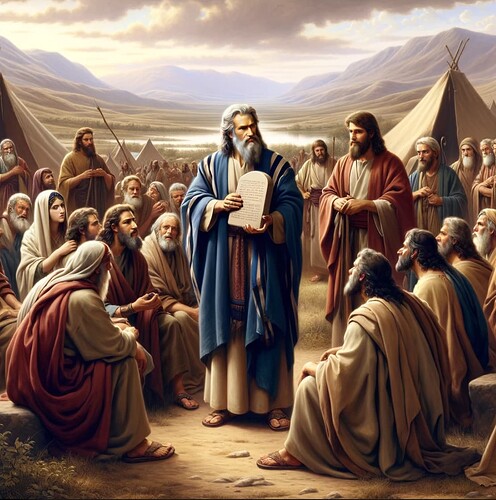 February 11: Exodus 21 - Ethical Governance & Personal Responsibility
February 11: Exodus 21 - Ethical Governance & Personal Responsibility
 Introduction
Introduction
Exodus 21 is rich in societal norms and laws. It provides broad brushes of responsibility in cases in which harm is done to another. It shows us that our actions, however unintentional, have effects that sometimes ripple way beyond our line of sight.
 Exodus 21: Balance of Justice
Exodus 21: Balance of Justice
While Exodus 21 may seem a world away with laws about slaves and ancient personal injury cases, its purpose serves to establish a sense of balance, fairness, and justice. The heart of God for justice is well-captured in verse 24:
![]() Key Verse: Exodus 21:24 - “Eye for eye, tooth for tooth, hand for hand, foot for foot,…”
Key Verse: Exodus 21:24 - “Eye for eye, tooth for tooth, hand for hand, foot for foot,…”
 Key Themes and Reflections
Key Themes and Reflections
This chapter reminds us of the necessity to bear the consequences of our actions. It is a call to personal responsibility in our relationships and dealings. More so, it underscores God’s heart in maintaining order and justice in society.
 Today’s Application
Today’s Application
The laws may be ancient, but the message is still pertinent: We ought to live considerately, aware of the potential impact, positive and negative, we can have on those around us. Therefore, may we uphold justice, kindness, and respect in our dealings to reflect God’s love and justice.
 Hidden Gem
Hidden Gem
Exodus 21 was a guideline for a time without police and without hospitals. The people had to self-govern, and these laws helped maintain social order. While our judicial system has evolved, the principle of responsibility for one’s actions remains unchanging.
 Reflective Q&A
Reflective Q&A
![]() Why are the laws in Exodus 21 important in terms of societal norms?
Why are the laws in Exodus 21 important in terms of societal norms?
A: They establish a framework for knowing right from wrong, laying a groundwork for justice and societal balance.
![]() What can we take from this ancient context to apply in our modern world?
What can we take from this ancient context to apply in our modern world?
A: We must be accountable for our deeds, and remember the importance of justice and fairness.
![]() What does Exodus 21 reveal about God’s character?
What does Exodus 21 reveal about God’s character?
A: God prioritizes justice, fairness, and the preservation of societal order. He cares about each of us and our interactions with others.
 Join the Discussion:
Join the Discussion:
What parallels can you draw between the values of Exodus 21 and those in our current society? How can these laws inspire us to live more justly and responsibly?
 See You Tomorrow in Exodus 22!
See You Tomorrow in Exodus 22!
Tomorrow, we continue our journey in Exodus, diving into societal laws and their implications. Join us as we further explore the wisdom in these ancient rules and their enduring themes of justice, responsibility, and love.
